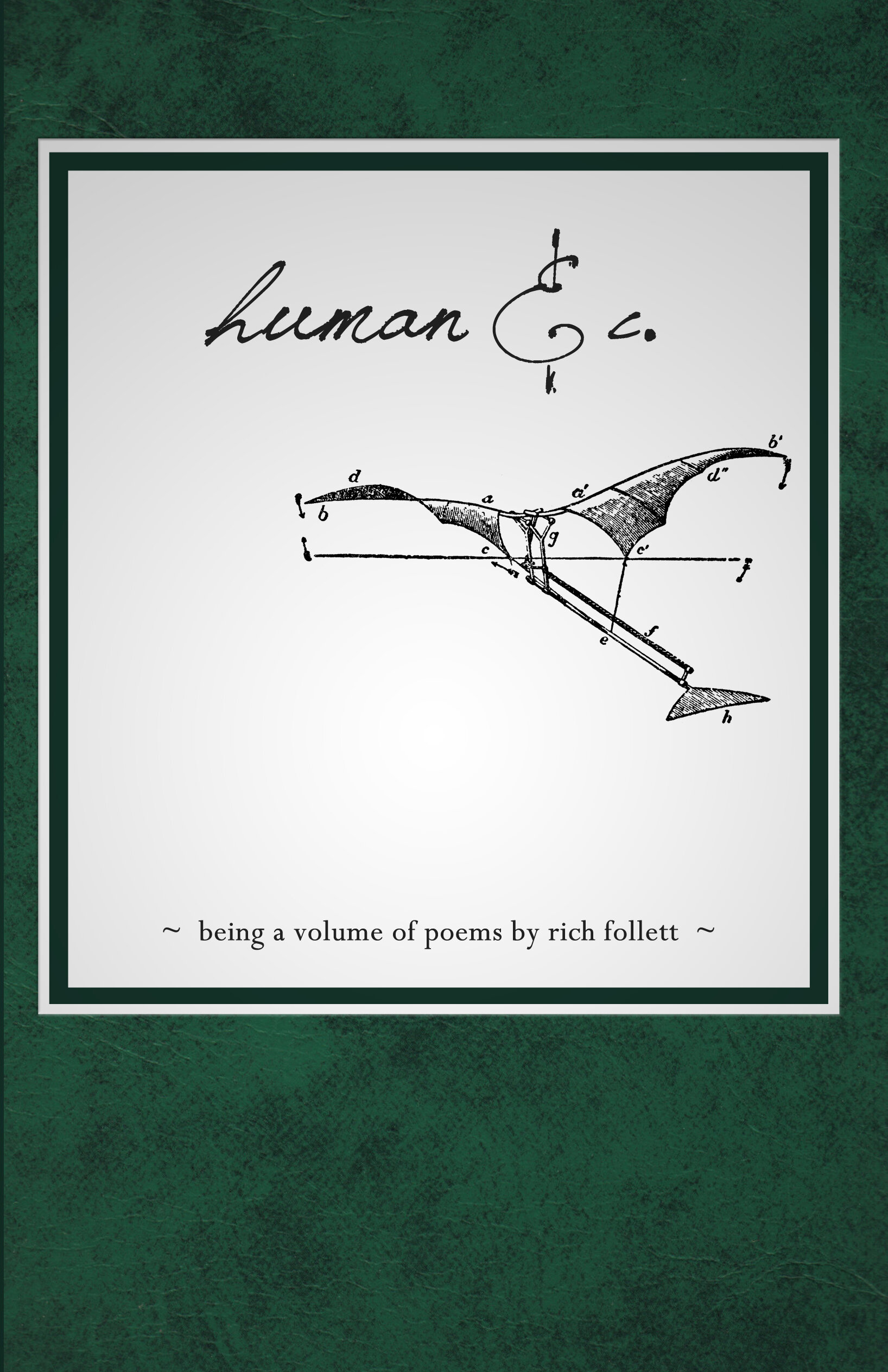Silence, Inhabited: Poetic Reflections on Surviving Childhood Sexual Abuse
Rich Follett
About the Author
Rich Follett has recently returned to writing poetry after a thirty-year hiatus. He lives in the sacred and timeless Shenandoah Valley of Virginia, where he joyfully teaches English and Theatre Arts for high school students. His poems have appeared in numerous contemporary journals and e-zines including BlazeVox, Paraphilia, Exercise Bowler, Calliope Nerve, Sugar Mule, Four Branches Press and Counterexample Poetics, for which he is featured artist. He is the co-author of Responsorials (with Constance Stadler). His haiku/photo combination Aurora's Adieu received first place honors in the first international iPoetry Poe-Tography Competition.
From the Foreword
“To call this a book of magnificent poetry would be wildly inadequate. While it is that, it is also much more. On this journey, we travel with the poet on a most complex, believable path from a childhood filled with the vilest horrors to an adulthood steeped in healing grace. It is a wonder to behold; it is a wonder as well to arrive so firmly in the knowledge that this work will help thousands who have endured such abuse and who seek affirmation to begin walking or the strength to continue walking on similar paths.”
—Constance Stadler, author of Tinted Steam, Sublunary Curse, Paper Cuts, Rummaging in the Attic, and Responsorials (with Rich Follett)
ISBN 978-0-9819984-9-7
92 pages
$14.95
5.5" x 8.5" perfect bound, paper
Reviews
“Flesh. Breath. Blood. Bone. Staggering. Stunning.
In Silence, Inhabited, Rich Follett conjures these words from the reality of his own life and insinuates them under the skin of the reader. He gives voice to the unthinkable in a way that no confessional poetry can touch. There is nothing confessed, this poetry lives far beyond that in a place of beauty, terrible and gorgeously wrought.
In language both raw and elegant, he crafts the tale of sexual abuse, its hidden weight, its compelling and forbidden desires, for ownership of one's own body, one's own passion, and the triumph of real intimacy. Silence,Inhabited lays bare childhood's end, the Norman Rockwell family hiding darkness, the death of a brother, and touch tainted and finally redeemed. This book was an education for me, a revelation. As a survivor, it removed that barrier in my heart that kept me from seeing men as my brothers in a shared legacy. As a poet, Follett, reminds me of what we are meant to do. I'm following you, brother, and I'm listening.”
—Lisa Alvarado, poet, novelist, author of Raw Silk Suture and Sister Chicas
“Silence,Inhabited should be a welcome joy for those who are nostalgic for a resuscitation of traditional aesthetic axiology and the Horation utile rather than a Nietzschean transvaluation. It has an arebours, against-the-grain approach with its convergent narration andstabilized, conjunctive “I.” This retrogression leaps out in a time of divergent, non-sequitur narratives and in a time when the concept of a stable and coherent “I” is under suspicion. In spite of Foucault, Barthes (and othercultural theorists), the author is alive, and not dead. There is not the now-customary questioning of representation and mimesis, but a faith in quotidian discourse. Figuration is more allegoric as in Piers Plowman than Mallarean symbolic. This is a poetry of conclusions, not interrogation. While the fashionable Mei-mei Berssenbrugge writes a long line so the reader cannot keep the whole line in his mind, Rich Follett terminally shortens his and thus becomes accessible. For those who disdain High Modernism, High Surrealism, High Postmodernism, High Language Poetry, High Deconstructionism, and Hamlet obscurity, this poetry with its novelistic accessibility will be a treasure to them.”
—Duane Locke, author of 21 books ofpoetry and recipient of The Edna St.Vincent Millay Prize, The Charles Agnoff Award, and The Poetry Society of America’s Walt Whitman Award
“The span of intellectualizing one’s existence, that is realization of ‘being’, is a subjective proclamation made when we encounter the truest disposition of our emotional structure. As a poet, Rich Follett is a chronological genius. In this, his collection of poems Silence, Inhabited, Follett himself self-summarizes these poems in a word: surviving, and with a combative vernacular, a reaching vernacular, the causational understanding of human triumph over an escalated evil such child abuse, the message of promise and engagement with light comes, from the title poem’s miraculous understanding:
it is only in making peace / with the permanence of loss / that healing happens.
And indeed, when healing begins its trek into the psyche of bodily understanding, the mind becomes tool for ascertaining strength of the humans’ often huge spectrum of gallant renewal.”
—Felino A. Soriano, author of 21 collections of poetry, including Variant Tongues of the Conjunctive Application
"Silence is often the most efficacious way to express the inexpressible. The psalmists greet the silence with impassioned hellos usually reserved for the fond return of absent friends. The ironists often say, "the silence is deafening." Rich Follett could be all three: expressive silence, impassioned psalmist, and/or scythe sharpironist; instead Follett prudently chose the founderous path of the poet. And he's a medallion level poet at that. Follett shatters the silence, without losing any of that expressiveness or wonder. Following a phoenix paradigm, Follett constructs flawless monuments to sound from the beautiful, bursting bones of the ruins he rises from; the result is an epic symphony heavy on emphatic truth and refreshingly bereft of the gossamer falsehoods that often compromise such bright flights. Follett is equal parts terpsichore and thaumaturge with the written word, and he's remarkably generous with his gift. Silence, Inhabited is a rush into something golden and endlessly embracing; in other words, eternal. Timeless poetry is improved in the presence of Follett's bright ascent.”
—William Crawford, author of Fire in the Marrow and Pushcart Prize nominee.
“A stunningly deep dive into the psychological scar tissue of abuse. A soldiering in the cause of self preservation and reclamation. Warrior brave, purely painful and full of victory. Abuse has its most profound adverse emotional impact when left to fester deep in the soul's soil. This collection of poetry is an outline for the redemption of victims of abuse to the ends of going in as fully as the Word can go, and digging it out.”
—Dan Kellett, radio host, founder of Bleed Honor Heal, co-founder of The Truth Project Network, spoken word track producer, music reviewer for The Plebian Rag, musician, spoken word artist and poet
“For me Rich Follett is everything a poet should be, bold in words, thoughts and honesty; skillful and artistic yet so accessible. The challenge he takes on here is brave beyond words. He explores and defeats the abuse he has suffered and emerges stronger, as does anyone who reads these stunning poems.”
—Si Philbrook, author of Ordinary Words






